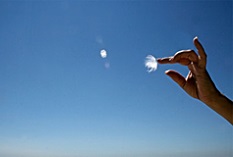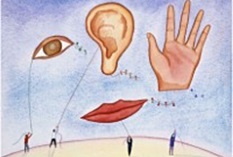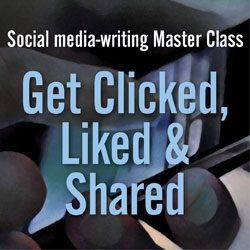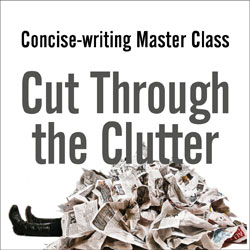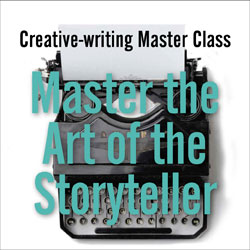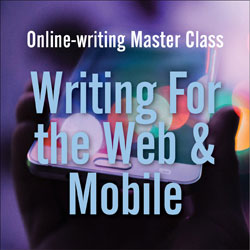Analogy helps readers experience your story
What does an epilepsy seizure taste like?

That’s the question Paul Harding answers in this passage of his Pulitzer Prize-winning novel, Tinkers:
“Howard had epilepsy. His wife, Kathleen … cleared aside chairs and tables and led him to the middle of the kitchen floor. She wrapped a stick of pine in a napkin for him to bite so he would not swallow or chew off his tongue. If the fit came fast, she crammed the bare stick between his teeth and he would wake to a mouthful of splintered wood and the taste of sap, his head feeling like a glass jar full of old keys and rusty screws.”
Take a tip from Harding and bring readers to their senses: Use description and analogy to show readers what your subject looks like, smells like, tastes like, feels like or sounds like.
Here’s how …
How to report with all your senses ![]()
Related stories |
|
|
Paint Pictures In Your Readers’ Minds
Make their brains light up
Think of description as virtual reality: Describe a scent, and your readers’ primary olfactory cortexes light up. Describe texture, and you activate their sensory cortexes. Describe kicking, and not only do you stimulate their motor cortexes, but you stimulate the part of the motor cortex responsible for leg action.

But write abstractly — aka, the way we usually do in business communications — and readers’ brains remain dark.
Want to stimulate some brain activity around, say, your CEO’s latest strategy or that brilliant Whatzit you’ll be releasing later this month? Description is the answer.
At Master the Art of the Storyteller — our two-day creative-writing master class on Sept. 25-26 in New York — you will learn to make your readers’ brains light up with description.
Specifically, you’ll learn how to:
- Dig up descriptive details: Try WBHA, the most overlooked reporting tool there is.
- Tune in to sensory information: Use our travel writer’s tip for going beyond visual description.
- Answer the scene-writer’s question: You can’t write good description without it.
- Take on The Popcorn Project: Practice our four-step process for writing vivid description.
- Communicate, don’t decorate: Use this tip to avoid stimulating readers’ gag reflexes instead of their cerebral cortexes.
Save $100 when you book one of the first 20 early bird tickets.
This is the last chance to take this creative-writing Master Class from Ann in 2017. Don’t miss out. Register now.
|
Polish your skills at these Master Classes
Learn to Master the Art of the Storyteller, Catch Your Readers, Get Clicked, Cut Through the Clutter and more
| |||||
| |||||
| |||||
Rather bring Ann in to train your whole team? | |||||
| ||
Ask about piggybacking on my upcoming engagements in:
| ||
|
